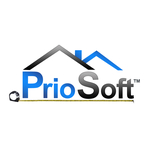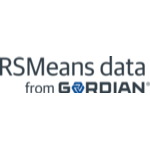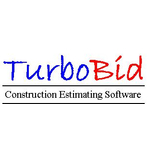TechnologyCounter provides genuine, unbiased real user reviews to help buyers make informed decisions. We may earn a referral fee when you purchase through our links, at no extra cost to you.
List of 15 Best Residential Construction Estimating Software
Showing 1 - 15 of 31 productsClear Estimates is an innovative software designed to simplify and streamline the process of creating accurate project estimates for construction professionals. With user-friendly features and customizable options, Clear Estimates is the go-to soluti...Read Clear Estimates Reviews
PrioSoft is a leading software company providing innovative solutions for businesses of all sizes. With a team of experienced professionals and a dedication to customer satisfaction, PrioSoft offers a range of customizable products to streamline oper...Read PrioSoft Reviews
PlanSwift is a leading software in the construction industry that has revolutionized the way contractors, subcontractors, and estimators manage their projects. With its user-friendly interface and powerful features, PlanSwift streamlines the estimati...Read PlanSwift Reviews
ProEst is a powerful, innovative construction cost estimating software designed to streamline the bidding process for contractors of all sizes. With its user-friendly interface features, ProEst has become a go-to choice for construction professionals...Read ProEst Reviews
Viewpoint is a software that takes your business to new heights. With its advanced features and user-friendly interface, Viewpoint provides a unique perspective for managing your operations. Say goodbye to traditional methods and welcome a fresh view...Read Viewpoint Reviews
RSMeans Data Online is your ultimate companion for accurate and up-to-date construction cost information. With over 85 years of experience, this powerful software provides users with the essential cost data they need to plan, estimate, and budget for...Read RSMeans Data Online Reviews
TurboBid is a estimating software designed specifically for the electrical industry. With its user-friendly interface and powerful features, TurboBid streamlines the estimating process, saving you time and increasing accuracy. Say goodbye to tedious...Read TurboBid Reviews
Buildertrend is a tool for construction professionals, designed to simplify project management and streamline workflows. With its user-friendly interface and robust features, Buildertrend empowers builders, contractors, and remodelers to efficiently...Read Buildertrend Reviews
BrickControl is a solution for efficient project management in the construction industry. With its user-friendly interface features, this innovative software streamlines tasks and enhances collaboration among team members. Say goodbye to manual proce...Read BrickControl Reviews
6x6builder is a solution for building and designing your dream projects with ease. This innovative software empowers users to effortlessly create stunning 6x6 structures, whether it be a website, logo, or graphic design. Say goodbye to complicated to...Read 6x6builder Reviews
Methvin is a software that revolutionizes project management. With its user-friendly interface features, Methvin streamlines workflow, increases productivity, and ensures project success. Say goodbye to clunky processes and hello to effortless projec...Read Methvin Reviews
Resi-Cost is a solution for accurate is a cost estimation for your construction projects. Simplifying the complex task of budgeting, this software provides detailed insights data to help you make informed decisions. Say goodbye to traditional methods...Read Resi-Cost Reviews
Estimator360 is a software solution for all your estimation needs. This innovative tool offers a user-friendly interface with advanced features designed to streamline and simplify the estimation process. With its accurate is a calculations, Estimator...Read Estimator360 Reviews
Hemea Renovation, the innovative software transforming the way we approach renovations. With its efficient and user-friendly features, Hemea Rennovation streamlines the renovation process, providing a seamless experience for contractors and clients a...Read Hemea Rennovation Reviews
Houzz Pro is a software designed specifically for home renovation and design professionals. With its user-friendly interface features, Houzz Pro streamlines business operations, increases efficiency, and enhances client satisfaction. Say goodbye to o...Read Houzz Pro Reviews
- What Is Residential Construction Estimating Software?
- Top Reasons Why Businesses Need Residential Construction Estimating Software?
- What Are the Top Key Features of Residential Construction Estimating Software?
- What Are the Top Benefits of Residential Construction Estimating Software?
- What Are the Steps to Choose the Right Residential Construction Estimating Software?
- What Are the Types of Residential Construction Estimating Software for Different Industries?
- What Are the Technology Trends for Best Residential Construction Estimating Software?
- What Are the Deployment Options for Residential Construction Estimating Software?
What Is Residential Construction Estimating Software?
Residential construction estimating software refers to a computer application specifically developed to assist construction industry experts in generating precise cost estimates for residential property construction endeavors.
Residential building estimating software facilitates the estimation process by offering a variety of features, including material cost calculations, labor cost calculations, option comparisons, and estimate creation, all inside a single package.
The best residential estimating software facilitates the enhanced management of intricate variables inherent in residential construction projects, hence minimizing inefficiencies and guaranteeing adherence to budgetary constraints. Estimation software can additionally serve the purpose of generating tenders for project bidding and ensuring their acceptance by the cost estimator.
Residential estimating software facilitates the calculation and generation of quotations for contractors, so enhancing the efficiency of residential construction projects, and ensuring timely completion and adherence to budgetary constraints.
Top Reasons Why Businesses Need Residential Construction Estimating Software?
1. Residential construction estimating software has the capability to automate the process of cost estimation, hence avoiding the occurrence of manual input errors and enhancing the overall quality of the estimates.
2. The residential building estimating software possesses the capability to efficiently produce comprehensive cost estimates by taking into account task specifications, material allocations, and labor expenses.
3. Residential building estimating software has the capacity to establish competitive pricing structures and guarantee profitability.
4. The residential construction cost estimating software facilitates the management of customer quotations and pricing suggestions in a prompt and effective manner.
5. The software facilitates the optimization of the procurement and procurement process, encompassing tasks such as material ordering, work cost tracking, and bidding activity monitoring.
6. The residential construction cost estimating software possesses the capability to facilitate the monitoring of construction expenses pertaining to inventories, labor, supplies, and subcontractors, hence facilitating precise invoicing.
7. The residential estimating software possesses the ability to generate estimates for every stage of a project, encompassing budget analysis and cost estimates for numerous task locations.
8. Residential building estimate software facilitates the examination of the unit pricing structure in order to establish a well-defined budget.
9. The implementation of this software results in a decrease in both production time and cost by automating processes that are repetitive in nature.
10. The program facilitates the exchange of data among several departments, including production statistics, sales predictions, and customer reports.
11. Residential building estimating software possesses the capability to provide personalized proposals and quotations, encompassing provisions for unforeseen cost escalations through the inclusion of contingency budgets.
12. The software facilitates concurrent user access, allowing for effective collaboration among numerous individuals working on a shared project.
13. The residential construction cost estimating software facilitates the continuous monitoring and analysis of job progress and costs in real-time.
14. The residential building estimating software facilitates the generation of data-driven insights pertaining to construction projects, hence enabling informed decision-making based on data analysis.
15. The best residential estimating software facilitates the streamlining of the approval procedure for change orders and cost bids, resulting in an accelerated project timetable.
What Are the Top Key Features of Residential Construction Estimating Software?
The top key features of residential construction estimating software include:
1. Material Pricing: The residential building estimating software facilitates users in efficiently obtaining price information for a range of materials necessary for a certain task.
2. Job Cost and Budget Tracking: The best residential estimating software offers immediate and up-to-date analysis of project expenditures and financial plans, encompassing many aspects such as workforce, resources, and indirect costs.
3. Quotation and Invoicing: This software facilitates the rapid generation and transmission of estimates to clients, while also automatically generating invoices upon completion of the task.
4. Reports and Analytics: The residential construction cost estimating software offers succinct documentation of job profitability and performance, encompassing regular updates on progress and comprehensive evaluations of projects.
5. Scheduling: This software application allows users to efficiently plan and organize work assignments, while also monitoring project schedules, task progress, and workforce needs.
6. Task and Labor Tracking: The residential construction cost estimating software automatically tracks and records the amount of time employees spend on each job and the specific tasks they work on.
7. Interface Integration: Enables seamless connectivity with mobile applications, accounting software, and various other software applications.
8. Document Management: The residential construction cost estimating software facilitates the storage and retrieval of pertinent documents by consolidating them in a centralized repository.
9. Security and Multi-lingual Support: The system guarantees the preservation of confidential information and offers multilingual assistance to both consumers and workers.
What Are the Top Benefits of Residential Construction Estimating Software?
1. Improved Accuracy: Residential construction estimate software facilitates efficient and precise cost calculations, hence enhancing time and cost management.
2. Streamlined Process: Residential building software facilitates the optimization of budgeting, estimation, and project tracking processes, hence enhancing resource allocation efficiency and time-saving capabilities.
3. Cost Control: Residential construction cost estimating software facilitates the monitoring and management of expenses, so ensuring adherence to budgetary constraints throughout the duration of projects.
4. Automation: Residential building estimate software serves to automate formerly manual processes, hence streamlining operations by reducing the need for laborious calculations and human data entry.
5. Tracking: Residential construction estimating software facilitates the monitoring of projects from initiation to completion, hence enhancing transparency and managerial oversight.
6. Reporting: The utilization of residential building estimating software facilitates the generation of complete data pertaining to project performance, so offering significant insights into the progress and expenses associated with the project.
7. Secured Data: Residential building software facilitates the secure storage of vital information inside a cloud-based environment.
8. Integration: The integration of the best residential estimating software with other solutions facilitates the seamless exchange of data, enabling users to access information from many systems simultaneously.
What Are the Steps to Choose the Right Residential Construction Estimating Software?
1. Identify your budget: It is vital to ascertain the precise sum that one is prepared to invest towards the procurement of a residential construction estimate software package. This will aid in the process of reducing the number of available choices.
2. Consider your existing software protocols: It is imperative to ensure that any home building estimating software under consideration is compatible with the prevailing construction procedures and software applications in use.
3. Make a list of essential features: Identify the elements that hold the greatest significance for the requirements of your organization.
When evaluating software options, it is important to take into account many elements including pricing, data integration capabilities, compatibility with existing software systems, project management functionalities, and the level of customer support provided.
4. Research the different software products available: Examine the inventory of necessary attributes in relation to the diverse array of offerings available in the market. Conduct a thorough examination of unbiased evaluations for each product, as well as scrutinize client testimonials.
5. Make a decision: After the identification of a residential construction estimating software that aligns with the user's requirements and remains within their financial constraints, the subsequent step involves the acquisition of said software.
6. Test the product: After the installation of the program, it is advisable to conduct a thorough testing process in order to ascertain whether it aligns with the desired expectations.
7. Monitor customer feedback: Once the program is implemented, it is imperative to actively monitor consumer feedback and evaluations in order to be informed about any potential modifications or updates that may be accessible.
What Are the Types of Residential Construction Estimating Software for Different Industries?
1. Home Builder or Construction Estimating Software: Contractors, home builders, and service-based construction organizations employ this particular sort of estimating application to calculate prices and formulate timely task offers.
The aforementioned method is employed for the purpose of computing labor, materials, and miscellaneous overhead expenses in order to ascertain a conclusive pricing for a certain project.
2. Commercial Construction Estimating Software: This particular kind of estimation software is specifically designed to cater to the needs of commercial builders and developers involved in large-scale residential projects. The system monitors and records project pricing, labor costs, and material costs.
Typically, these projects exhibit heightened levels of automation, including interaction with software systems for construction management and accounting.
3. Manufacturing Estimating Software: The aforementioned estimating software is predominantly utilized within the manufacturing sector.
The software possesses distinctive functionalities, such as real-time tracking and monitoring of project expenses, comparative analysis of various production methods, cost estimation for different production techniques, and identification of potential issues.
4. Landscape and Outdoor Building Estimating Software: The aforementioned estimating software is specifically tailored to cater to the needs of outside contractors, including professionals in the field of landscaping and pool construction.
The software monitors landscaping projects and other outdoor construction endeavors, enabling contractors to precisely assess the expenses associated with constructing retaining walls, decks, patios, walks, and similar structures.
What Are the Technology Trends for Best Residential Construction Estimating Software?
The current technological advancements in residential building estimate software encompass a variety of trends.
1. Expanded Integration with Accounting Software: The incorporation of accounting functionalities is a prominent trend within the realm of optimal residential construction estimating software. This form of connectivity facilitates the seamless transfer of data between construction estimating software and accounting software.
This facilitates precise recording of task expenses, guarantees exact billing of labor, and assures precise invoicing for clients.
2. Automated Cost Estimation: The utilization of automated cost estimations facilitates time efficiency and enhances the precision of outcomes. Automated cost estimates rely on previous data and several parameters, including but not limited to geographical location, materials used, and labor requirements.
The integration of this data with the estimating program facilitates the generation of estimates that are both rapid and precise.
3. Mobile and Cloud-Based Solutions: The adoption of mobile and cloud-based solutions is increasingly prevalent within the residential construction business, emerging as a widely accepted industry norm. Cloud-based solutions provide a safe means of accessing project data from any device.
This facilitates the evaluation of projects, the retrieval of task expenses, and the formulation of data-informed judgments by construction teams, regardless of their geographical location.
4. Use of Augmented and Virtual Reality: The utilization of augmented and virtual reality technology is increasingly prevalent and pervasive within the home construction sector. The integration of both elements can contribute to the enhancement and efficiency of the design, visualization, and construction procedures in the context of residential building.
5. Improved Data Security: The significance of data security in the context of home construction software is experiencing a notable rise. Residential building estimating software of superior quality incorporates comprehensive security features to effectively safeguard the software against any cyber threats.
What Are the Deployment Options for Residential Construction Estimating Software?
The selection of deployment options for residential construction estimating software is contingent upon the specific requirements of the user.
In a broad sense, the software has the capability to be implemented in on-premises environments, cloud environments, or a combination of both through hybrid solutions.
1. The utilization of on-premises residential building estimating software involves the installation and operation of the software on the user's network and server infrastructure. Consequently, the user retains full authority over the data and processes related with the software.
2. Cloud-based residential construction estimating software refers to a type of software that is hosted on servers accessible through the internet. This software enables users to store and share data inside a cloud environment, providing the convenience of accessing information from any location with an internet connection.
The proposed system offers enhanced flexibility and scalability in comparison to on-premises alternatives, while also eliminating the need for users to possess physical server access.
3. An alternative approach for home building estimating software is the integration of both on-premises and cloud-based systems. This solution integrates the advantages of both on-premises and cloud-based solutions, enabling users to maintain desired control over data and processes, while also using the scalability and flexibility offered by cloud-based technology.















